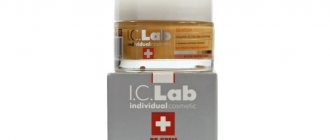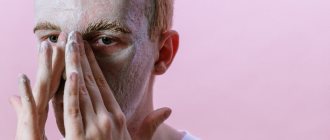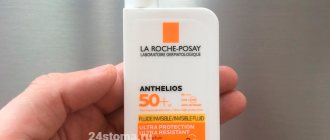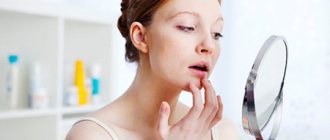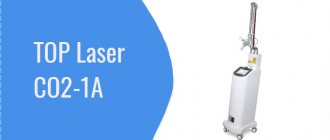Pimples are common acne, or acne vulgaris, a common skin disease that, according to various sources, affects 35 to 90 percent of adolescents. The disease can go away on its own, however, this usually does not happen soon, and for some people, acne persists into adulthood. Acne is difficult to put up with, it is often a psychological problem, and many people want treatment. But even those who immediately see a good doctor who understands modern approaches to treatment can find it difficult to cope with acne. The fact is that the drugs need to be used for a long time (otherwise it is impossible to understand whether there is any benefit from them), you have to visit the doctor again to select the appropriate therapy, and the effect usually consists of a significant reduction in the manifestations, but not the complete disappearance of acne, in addition, there is a risk of developing adverse events.
Causes of acne
There are four main factors in the development of acne:
- Skin cells die and, together with sebum, block the hair follicle. White or black plugs are formed - comedones, and for many acne manifestations are limited to this.
- Hormonal changes during adolescence cause the sebaceous glands to enlarge and produce excess sebum. However, in most cases, these changes cannot be detected using tests; hormone levels usually remain normal. Much less common is an excess of androgens, to which the sebaceous glands are sensitive. Increased levels of these hormones are observed in polycystic ovary syndrome and some other diseases that require additional treatment, but in this case there are clinical manifestations noticeable to the doctor, so there is still no need to take tests for everyone.
- Excessive sebum leads to the rapid growth of Propionibacterium acne bacteria, which live on the skin.
- Bacterial growth and other causes lead to inflammation.
In fact, that's all. Acne can be worsened by frequent washing (especially with hot water), the use of regular soap instead of a special facial cleanser, a love of scrubs and peels, squeezing and picking at pimples, and the use of oil-based products and cosmetics that additionally clog pores (comedogenic).
Some medications can cause acne. So be sure to tell your doctor about all the medications, even vitamins and supplements you take.
Do diet and stress have an impact? Stress can likely make acne worse. But the role of diet remains controversial. Some studies find a weak link between drinking cow's milk and an increased risk of acne, possibly due to hormones naturally found in milk. However, there is no convincing evidence that fatty and sweet foods (including chocolate) worsen acne. And no other disorders in the body, if any, lead to the appearance or intensification of acne symptoms: neither disruption of the intestines, nor the immune system, nor a lack of any substances.
How to care for problem skin with acne?
In the beauty arsenal of girls there are many products that can be used to moisturize.
Moisturizing cream for problem skin
Moisturizers perform two important functions at once. On the one hand, they saturate the skin with moisture due to the presence of hygroscopic components in them. On the other hand, they have moisture-locking properties, that is, they form a film on the face that prevents moisture from evaporating.
The moisturizer may contain collagen, hyaluronic acid, panthenol, ceramides, and plant extracts. The presence of oils in the formula, for example, jojoba, shea butter, and avocado, “locks” moisture, preventing it from evaporating.
Gel for moisturizing acne skin
For problem skin with acne, it is better to choose cosmetics that do not contain fat. The texture of the care product should be light and refreshing. And here the gel comes to the rescue.
Unlike cream, gel will not be able to “seal” moisture, but the depth of its penetration into the skin is usually greater. The gel does not create a sticky or greasy film, does not leave marks on clothes, and is quickly absorbed.
Moisturizing facial masks
They contain more active substances than gel or cream. They should be used no more than 2 times a week. In addition to moisturizing components, the mask may contain ingredients that help fight acne. This product helps remove blackheads, reduce oily skin, mattify, and even out the complexion.
Moisturizing serum
The richest, most active and complex moisturizer is serum. Compared to creams, masks and gels, the concentration of active substances in it is the highest, so serums are often sold in ampoules, and only a few drops need to be applied.
Serums are mistaken for drugs, but they are not. They are used for care, but in treatment special preparations must be used, for example, Clindovit® gel, which is a topical antibiotic.6
This type of cosmetic product has a deep effect, restores the skin from the inside, activating the body's natural resources. The texture of serums is often liquid, less often gel-like. The main component in them, as a rule, is hyaluronic acid.
In home care procedures, it is necessary to use several products at once, for example, a cream is applied after the serum. Do not forget that moisturizing is only one of the stages of care; it should be preceded by cleansing, exfoliation (no more than once a week), and after it a product that provides nutrition can be applied.
Medicines
There is a hereditary predisposition to acne, and nothing can be done about it yet, but we have learned to influence all other parts of the pathological process with the help of medications. Drugs can reduce androgen levels, unclog sebaceous ducts, and have anti-inflammatory or antimicrobial effects.
Special acne treatment regimens have been developed depending on the nature of the rash (black and white spots or pimples) and the severity of the manifestations. These schemes differ slightly in different sources, but not fundamentally. They use the same groups of drugs:
- Retinoids applied to the skin (adapalene) combat clogged pores by reducing the “cling” of dead skin cells, speeding up their exfoliation.
- Salicylic acid removes dead skin cells.
- Azelaic acid also helps unclog pores and can kill bacteria. Like retinoids, it can reduce dark spots left behind by acne.
- Benzoyl peroxide kills bacteria.
To begin with, if acne symptoms are mild, you can try self-treatment with one of the drugs listed above or even a combination of them. Moreover, the combination may be more effective. Typically, a combination of benzoyl peroxide (applied in the morning) with a retinoid (applied in the evening) is chosen. If the retinoid is poorly tolerated, it is replaced with salicylic or azelaic acid. For people with oily skin, gels are more suitable because they dry out the skin, while for people with dry skin, creams are more suitable. To find out if you are allergic to the medicine, apply it to a small area of skin for the first three days. When using topical retinoids, you should apply a sunscreen with SPF 30 or higher before going out into the sun because the drug increases skin sensitivity to the sun. If after three months of use there is no improvement, if acne is moderate or severe, you should consult a doctor. He will help you choose treatment and make sure you are using medications correctly. Here's what your doctor may prescribe:
- Antibiotics applied to the skin (clindamycin, erythromycin, fusidic acid) control bacterial growth and reduce inflammation. To reduce the risk of bacterial resistance to antibiotics, they are prescribed in combination with benzoyl peroxide.
- Oral antibiotics (erythromycin, tetracycline, minocycline, doxycycline) work the same as antibiotics applied to the skin, but are more potent and have a higher chance of side effects.
- The hormone estrogen can help offset the effects of androgens. Estrogen in the form of birth control pills (oral contraceptives) is sometimes recommended for women if their acne is moderate or severe. Not all oral contraceptives should be used to treat acne, and some may even worsen symptoms.
- Spironolactone is another drug that can be used to treat acne in women. Reduces the effects of androgens.
- Oral retinoids (isotretinoin) are very effective for severe acne, but can cause serious side effects and birth defects in the fetus. Women who want to take isotretinoin must follow very strict safety rules to avoid pregnancy (take regular pregnancy tests, use two methods of birth control at least one month before starting therapy and one month after it ends). In the US, for example, there is the iPLEDGE program, which requires compliance with certain rules when writing a prescription for isotretinoin. In addition, skin irritation, depression with suicidal behavior, increased blood triglycerides (fatty substances related to cholesterol), liver damage, pancreas damage, and changes in blood counts may occur during isotretinoin therapy. Some of these side effects may be dangerous and require you to stop taking the drug immediately. If you are prescribed isotretinoin, strictly follow all your doctor's instructions and regularly take general and biochemical blood tests to monitor cholesterol, triglyceride levels, and liver function.
Mistakes that lead to skin problems
- Aggressive cleansing. Using alcohol toners, scrubbing your skin too often, and washing your face with products containing SLS and SLES are bad habits. By doing this, you destroy the natural protective barrier of the skin, dehydrating it and making it even more vulnerable. At the same time, comedones and inflammation do not disappear anywhere, and the skin begins to secrete even more sebum for protection.
- Lack of tonics in care. The toner is designed to restore the pH of the skin after cleansing and create an environment unsuitable for the growth of harmful bacteria. If you exclude this stage from your care, you leave your skin alone to fight pathogens.
- Squeezing and scratching inflammations. These actions can not only aggravate the situation and make the pimple more noticeable, but also transfer bacteria from one part of the face to another. After one squeezed pimple, you risk seeing a whole scattering of pimples on your face in a couple of days. This is especially true for problematic and oily skin.
- Incorrectly selected care and decorative cosmetics. Lack of hydration, comedogenic products, foundations that clog pores and seal bacteria under a silicone film - all this can lead to deterioration of the skin.
What else do you need to know
There is no single best acne treatment. If the drug does not help within two to three months, it is replaced with another one. A long period of time is needed to evaluate the effectiveness, since eels need at least eight weeks to mature, it is unlikely that significant improvement will occur sooner.
Many people experience skin irritation—redness and peeling—when they first start using topical acne treatments. This is not an allergy; this reaction usually goes away over time. In such a situation, until the skin gets used to it, you can apply the drug with a lower concentration or less often, not even every day, and as you get used to it, start using it more often and in a higher concentration. In addition, you can additionally use a moisturizer, but it must be non-comedogenic.
During pregnancy, many drugs are contraindicated. Women who are pregnant or planning to become pregnant should stop acne treatment before becoming pregnant. If treatment during pregnancy is necessary, topical erythromycin, clindamycin, or azelaic acid may be prescribed after assessing the risks versus benefits of therapy.
Patients who improve with treatment are usually advised to continue treatment with topical retinoids (sometimes along with benzoyl peroxide).
How to moisturize your facial skin and why do it?
As you already understand, moisture is necessary for any skin type, so you should use moisturizers in your care. Thanks to this, physiological processes in the skin will proceed more actively. The skin will be able to perform its protective functions and resist aggressive environmental factors.
With a lack of moisture, the production of elastin and collagen decreases, and the skin becomes less elastic. Sometimes dehydration is mistaken for oily shine, but in fact it is a sign of lack of moisture.
It is necessary to properly care for problematic facial skin:
- exclude alcohol solutions and aggressive cosmetics from your care;
- do not overuse clay masks and scrubs;
- wash your face no more than 2 times a day;
- use moisturizing cosmetics;
- Do not forget that acne requires treatment; cosmetic care alone is not enough.
If you violate these recommendations, you may experience even more peeling of the skin, the development of follicular hyperkeratosis, and increased sebum production.
Treatment of mild to moderate acne can be carried out using Clindovit® 6.18 gel. It contains clindamycin phosphate, which exhibits antimicrobial activity against propionibacteria6.
It's amazing how many problems can be avoided by simply adding a moisturizer to your skin care routine.
